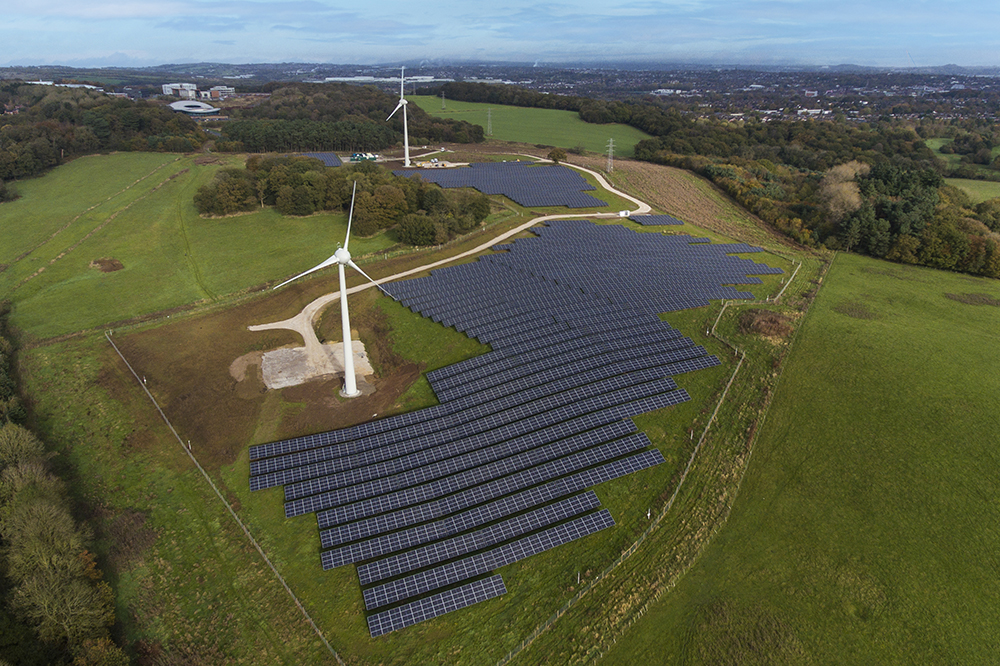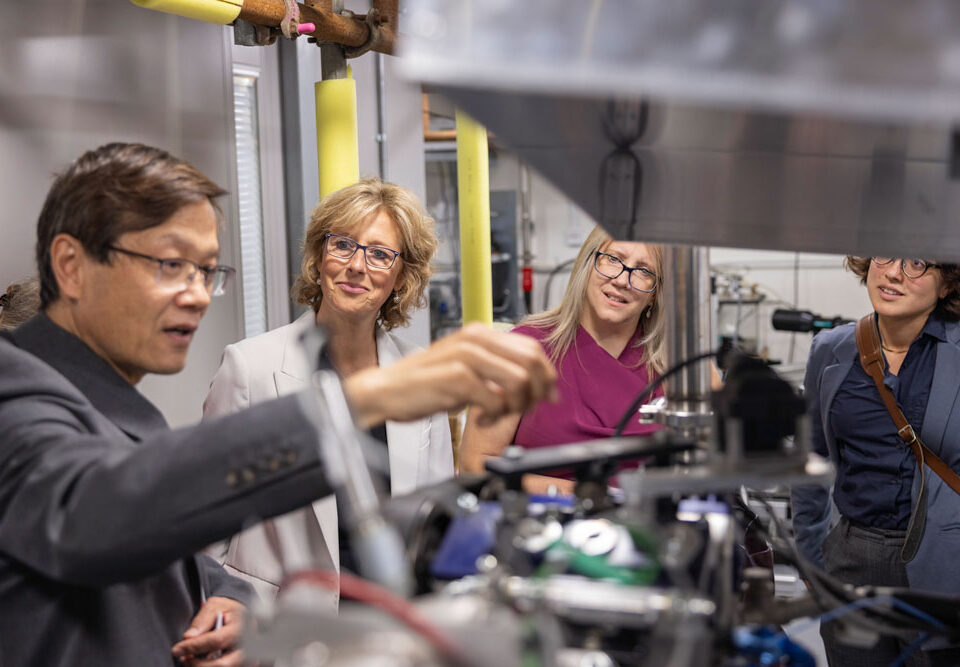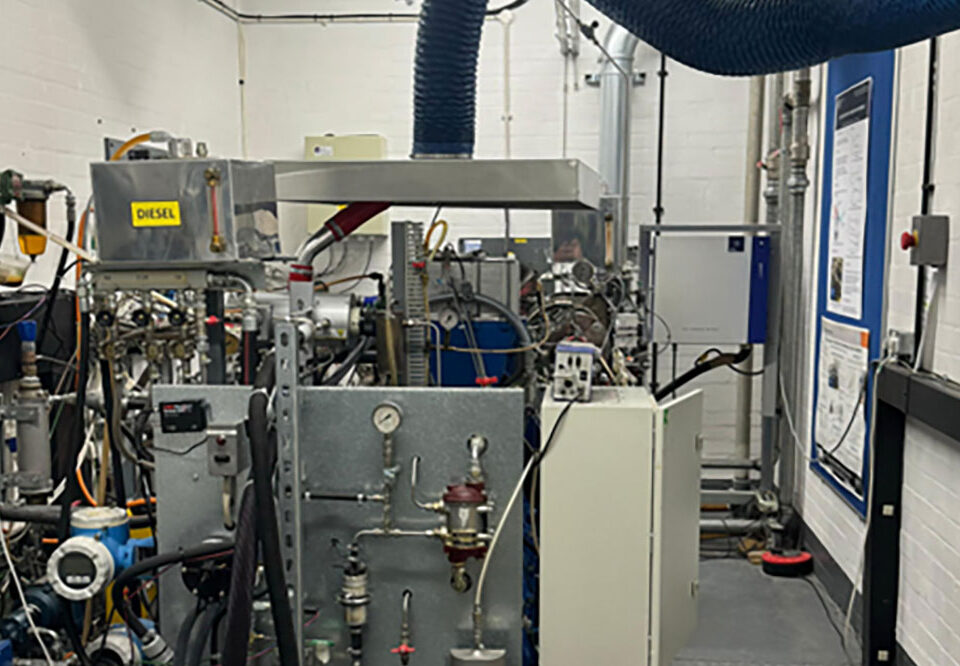Overview
As a sector leader in sustainability and green technology, Keele has led from the front in trialling new and emerging low carbon and renewable energy technologies, using the campus as a living laboratory to test them at scale. From a renewable energy generation park providing up to 50% of the campus’ electricity needs, to Europe’s first Smart Energy Network Demonstrator, and trialling the UK’s first project blending hydrogen into a natural gas grid to reduce carbon emissions, Keele has worked with partners to demonstrate the potential and the viability of these technologies for building a more sustainable future.
These projects have been delivered with a range of collaborators from across the region and including major businesses like Siemens, Cadent and Equans, as well as partners from across the higher education and private sectors.
The Challenge
The world needs more innovative solutions to combat the ever-growing threat of climate change. Reliance on fossil fuels in a precarious and volatile energy market, plus an increasing awareness of the impact of human activity on the climate have brought the issue of our fragile climate to the fore, but resistance to new technologies and adaptations have made it challenging to scale up sustainability solutions, as well as conflicting ideas on how net zero can be achieved.
Guided by the UN’s 17 Sustainable Development Goals (SDGs), our approach is to embed sustainability in everything we do, demonstrating how this can be done at scale, as well as the potential for new technologies in making our lives more sustainable and environmentally friendly. With our unique campus – a small town in a former industrial heartland – we are ideally placed to not only test these new technologies such as hydrogen blending, smart energy monitoring and distribution, and renewable power, but also to showcase the potential these could have in towns and cities across the country.
Partnerships
Partnerships have included:
- Working with Siemens to develop a Smart Energy Network Demonstrator, the largest of its kind in Europe, using our campus as a living laboratory to test intelligent methods of energy generation, distribution, storage, forecasting and balancing across different energy sources using the Keele University campus as a genuine ‘living laboratory.’
- Working with Cadent and Progressive Energy to test hydrogen blending into a natural gas grid in a UK-first trial. HyDeploy saw hydrogen (up to 20%(vol)) blended into the campus gas grid, and used to heat and supply 100 homes and 30 mixed-use buildings on campus, with no changes required to existing heating and cooking appliances. This is estimated to have saved 27 tonnes of CO2 from entering the atmosphere.
- Working with Equans to install 12,500 solar panels, two wind turbines, and an industrial sized battery on our campus to supply up to 50% of our campus’ electricity needs from renewable sources.
- We’re leading the HyDEX project in collaboration with university partners in the Energy Research Accelerator consortium, along with multinational businesses, to support and foster the creation of a new hydrogen economy in the Midlands, including building markets and the supply chain, and supporting the skills and innovation needed to accelerate hydrogen uptake.
Research
As well as testing the blending of hydrogen into a live gas grid through the HyDeploy project, the trial also enabled our academics to conduct the first research with consumers that were using hydrogen-blended gas, to ascertain their opinions on using the blend in a domestic setting. Their evidence will be critical for the Government’s future decision-making on rolling hydrogen out more widely. Important materials testing and research into thermoacoustic modelling of hydrogen blend flames was also undertaken.
The SEND project team also worked with local businesses to help them innovate and adopt new practices, such as a local mobile phone repair company, TMT First, who have been able to scale up their operation and recycle even more devices, with both an environmental and economic benefit.
Meanwhile the university’s renewable energy park has enabled ecology researchers to carry out research into the biodiversity impacts of such sites, how developments like these can impact nature, and how they can adapt to the new environment.
Impact
Without HyDeploy the foundations for the hydrogen revolution – acknowledged by the Government as an essential part of our journey to Net Zero – could not have been laid. Rolling a hydrogen blend out nationally would not be possible without HyDeploy first demonstrating that it was viable, practical, and safe, which will ultimately benefit consumers in the UK and around the world the most, by making their energy usage more sustainable, and boosting the economy through the creation of a new hydrogen industry and ecosystem.
Crucially, the trial has shown that hydrogen blending can be done safely and effectively, with no adverse effects for consumers using the gas, and has also enabled further trials in a public gas grid in the Northeast of England, with similarly positive results reported.
SEND also enabled projects which had a significant impact for local businesses. TMT First have been able to scale up their operation by exploring new techniques for repairing mobile screens and batteries. By finding ways to extend the lifespan of devices, they have prevented an estimated 100,000 devices from going to landfill each year.



